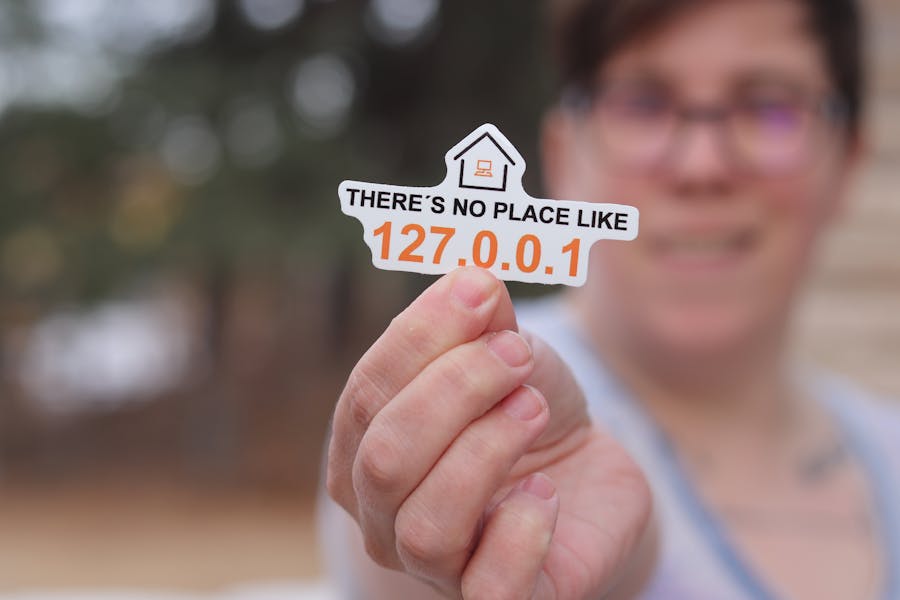
The question of why did Ernie Lively change his name may seem simple on the surface, but the answer tells a powerful story of family, identity, and legacy. Before he was known in Hollywood as Ernie Lively, he was Ernest Wilson Brown Jr.—a man with a different name and a different past. His transformation wasn’t just a Hollywood branding move; it was a deeply personal decision with lasting ripple effects.
By choosing the surname “Lively,” Ernie wasn’t just reinventing himself—he was creating something enduring for his family. His wife’s last name became the one he proudly adopted, not only as a sign of unity but also as a gesture of love and support for the future they were building together. This name would go on to be shared by his children, including the future star Blake Lively, and become a recognizable part of Hollywood culture.
In an industry where names can open doors or close them, Ernie’s decision positioned his family for success. His story is a reminder that sometimes, a name change is more than a career move—it’s a legacy in the making. In the sections that follow, we’ll explore the heartfelt reasons, the professional significance, and the lasting impact of Ernie Lively’s choice.
Why did Ernie Lively change his name?
Ernie Lively changed his name from Ernest Wilson Brown Jr. to create a stronger professional identity in Hollywood and to symbolically unify his family, especially as his children, including Blake Lively, pursued careers in the entertainment industry.
The Emotional and Strategic Reasons Behind Ernie Lively’s Name Change
When exploring why did Ernie Lively change his name, it becomes clear that the decision was about far more than just Hollywood branding. Born as Ernest Wilson Brown Jr., Ernie made a thoughtful and deliberate choice to adopt a new identity early in his acting career. This wasn’t a move driven by ego or fame, but rather by a desire to begin a new chapter—one rooted in personal transformation and family unity.
At the time, Ernie was transitioning from life as a Navy veteran to the competitive world of acting. Changing his name to “Ernie Lively” gave him a clean slate, one that symbolized a break from the past and a focus on a new, creative future. However, the name “Lively” wasn’t randomly chosen—it was his wife Elaine’s surname. By taking her last name, Ernie solidified a public bond with his family, presenting them as one cohesive unit.
This change proved decisive. His children, including Blake Lively, would later achieve fame under the same name. The Lively name became more than a label—it became a legacy. Through one simple yet meaningful act, Ernie gave his family not just a name but a shared platform for future success.
When and How Did Ernie Lively Make the Name Change Official?
Changing one’s name in Hollywood is often more than a branding decision—it can mark the beginning of a new identity. For Ernie Lively, this transformation was both personal and purposeful.
The Legal and Professional Process
Ernie Lively officially changed his name after marrying Elaine Lively, a decision that carried both legal and symbolic weight. While many name changes are treated as simple formalities, for Ernie, it marked the beginning of a transformation—one that would reshape his public and professional identity. This step wasn’t taken lightly. It reflected a new phase of life, embracing not only a new family but a fresh career path in the entertainment industry.
From Military to Hollywood
Before pursuing a career in acting, Ernie served in the United States Navy. Like many veterans transitioning into civilian life, he saw his new career as a reinvention of self. Changing his name to Ernie Lively helped distance him from his past in the military and allowed him to step confidently into the Hollywood spotlight with a clean slate. It gave him a more distinctive and marketable presence that fit the entertainment world’s need for standout personalities.
Aligning with a New Family Identity
Elaine Lively, his wife, already had children from a previous marriage. Together, they formed a blended family, and Ernie’s choice to adopt the Lively surname was as much about family unity as it was about professional rebranding. His decision established a shared name that would later benefit their children, especially as they entered the same industry.
The Hollywood Trend of Reinvention
Ernie Lively’s name change also mirrored a broader trend in Hollywood, where reinvention is often a rite of passage. From Norma Jeane becoming Marilyn Monroe to Reginald Dwight transforming into Elton John, changing one’s name can be a decisive move. Ernie’s change aligned him with this long-standing tradition, blending personal motivation with cultural precedent.
Why Did Ernie Lively Change His Name? The Core Motivations Explained
There were several meaningful motivations behind why Ernie Lively changed his name, each rooted in personal identity, professional strategy, and family values. Below are the core reasons that influenced his decision:
- Professional Branding: In an industry where names can make or break recognition, “Ernie Lively” carried a more distinctive and memorable flair than his birth name, Ernest Brown Jr. The new name gave him a professional edge and a more Hollywood-friendly identity, helping him stand out in casting calls and credits.
- Family Unity: One of the most heartfelt reasons was the desire to create a cohesive family unit. By taking his wife Elaine’s surname, Ernie built a shared identity that symbolized love, partnership, and belonging, especially important as they raised a blended family in the public eye.
- Support for Children’s Careers: As his children began pursuing acting careers, having a consistent and recognizable family name gave them a branding advantage. “Lively” became more than a surname; it became a trusted name in Hollywood, particularly with the rise of Blake Lively.
- Cultural Norm Shift: At the time, it was uncommon for men to take their spouse’s last name. Ernie’s choice broke conventional norms and reflected a progressive mindset, adding a unique dimension to his story.
- Fresh Start After the Navy: Having served in the U.S. Navy, changing his name signaled a new beginning. It marked his transition from military life to Hollywood—a personal evolution from serviceman to actor, mentor, and father.
The Influence of Ernie Lively’s Name Change on His Career and Family
The name change did more than rebrand Ernie—it opened doors. In a competitive industry where uniqueness matters, “Ernie Lively” gave casting directors something to remember. It also helped shape the public image of a father supportive of his family’s Hollywood aspirations.
His career included roles in films such as Passenger 57 and Turner & Hooch, as well as appearances on popular TV series. While he never reached A-list stardom himself, his contributions to the industry were significant. Meanwhile, his children, especially Blake Lively, benefited from the clarity and consistency of their family name in an industry that often runs on perception.
Ernie’s decision to change his name showed foresight. It helped his family navigate the complex web of identity, branding, and opportunity. In retrospect, the decision was more than personal—it was foundational to the Lively family’s collective success.
Why Did Ernie Lively Change His Name and How It Shaped Hollywood Identity
The decision to change a name might seem small, but in the case of Ernie Lively, it helped define an entire family legacy in the heart of Hollywood. His choice to move away from his birth name, Ernest Wilson Brown Jr., not only reshaped his identity but also left a lasting impact on his family’s future in the entertainment world. Here’s how why did Ernie Lively change his name became a turning point in shaping Hollywood identity.
- A Legacy Built on a Name: Ernie’s decision to adopt the “Lively” surname laid the foundation for a multi-generational legacy. While he carved out a respectable career in film and television, it was the symbolic strength of the name that carried on through his children, especially Blake Lively, whose fame further solidified the family name in Hollywood.
- Public Recognition and Consistency: By uniting the entire family under one recognizable surname, Ernie created a cohesive public identity. This consistency allowed media, casting directors, and audiences to associate the Lively name with talent and professionalism, reinforcing their brand across generations.
- Emotional and Symbolic Rebirth: The name change wasn’t just practical—it was emotional. It represented a fresh chapter, filled with love, family unity, and a renewed sense of purpose. It marked Ernie’s transformation from a Navy veteran into a family man and actor.
- The Modern Impact of His Choice: Today, the Lively name resonates with millions, carrying connotations of grace, charisma, and credibility. Ernie’s choice didn’t just benefit his own image—it built an enduring identity that continues to thrive in Hollywood.
In Summery
Exploring why did Ernie Lively change his name unveils a story rooted in more than just image—it reflects identity, purpose, and long-term vision. Ernie’s choice to adopt the Lively surname wasn’t merely cosmetic; it symbolized his commitment to family unity, personal reinvention, and professional clarity. It helped solidify a recognizable brand that not only supported his acting journey but paved the way for his children, especially Blake Lively, to thrive in Hollywood.
His name change served as a strategic and heartfelt decision that shaped public perception and established a lasting legacy. Ultimately, Ernie Lively’s transformation reminds us how a single, intentional choice can impact generations and redefine a family’s place in history.
FAQ’s
What was Ernie Lively’s real name?
Ernie Lively was originally named Ernest Wilson Brown Jr. He changed his name after marrying Elaine Lively, marking a new chapter in both his personal and professional life.
Why did he choose the name “Lively”?
He adopted his wife Elaine’s surname, “Lively,” to symbolize family unity and create a consistent identity for their blended family, especially in the public eye.
Was the name change legal?
Yes, the name change was made official through legal channels, reflecting Ernie’s desire to fully embrace a new beginning both personally and in his Hollywood career.
Did his name change affect his acting career?
Absolutely. The name “Ernie Lively” was more distinctive and marketable than his birth name, which helped him gain recognition and establish a personal brand in the industry.
How did Blake Lively benefit from this change?
With the Lively name already respected through Ernie, Blake entered the industry with a recognizable brand, which gave her a boost in visibility and family-driven credibility.






